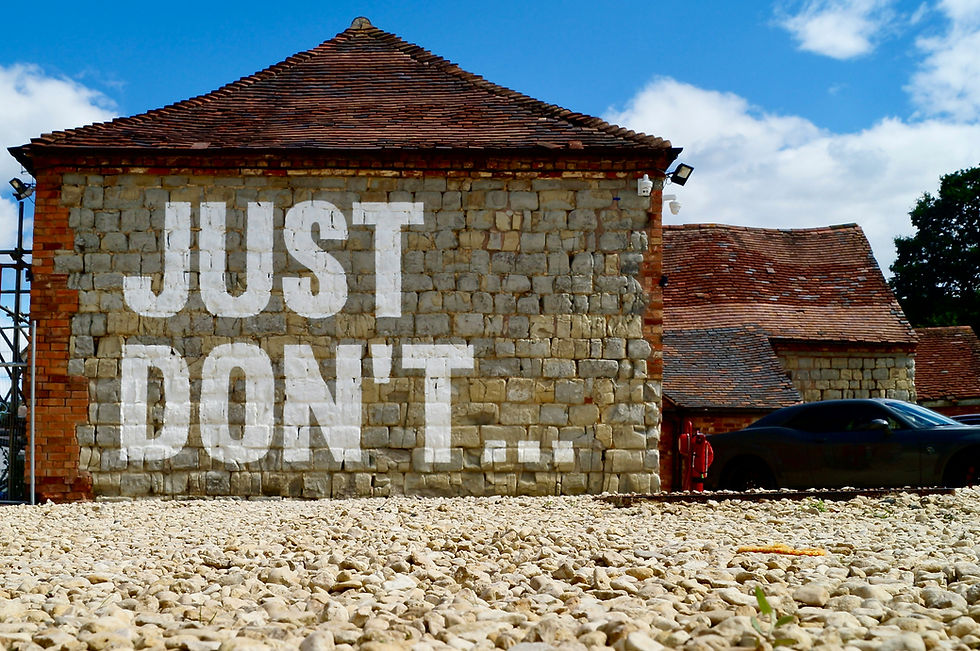"Not All White People!" - Said All White People (at least once).
- Jessica Kiragu
- Jun 5, 2025
- 4 min read
Okay, maybe not all white people have said it. And sure, maybe some of us have only said it to ourselves.

Still, if you’re white like me, you probably know the feeling. The deep discomfort when you encounter a message that’s clearly directed at white folks. You might feel a little exposed or your shoulders tense up. Could be you find yourself thinking, But I’m doing my best. I care. I’m not like the others.
That impulse to explain or distance ourselves? It makes sense. No one wants to feel misunderstood or grouped unfairly.
But when someone says “white people…” and it’s undeniably meant for us, we’ve got a choice. We can shut down—or we can get curious and lean in a little. We can respond as we have in the past—or choose to show up differently.
Because maybe what’s being offered isn’t an accusation. Maybe it’s an invitation.
Growing up, I thought racism was about individual acts of cruelty. Slurs. Burning crosses. People doing blatantly awful things. I didn’t see how race—and whiteness—was woven into everyday life. How it shaped the schools I went to, the neighborhoods I felt safe in, the stories I saw on TV. It was like the background music in a store—always playing, always shaping the vibe, constant and familiar.
That’s the tricky thing about whiteness. It often feels like nothing at all to white people. It’s our normal.
So when someone directly names whiteness, it can feel like a jab. It might seem like we’re being singled out or misunderstood. And that’s where the “Not All White People” reaction kicks in. It might be our way of saying—I mean well. I’m trying. I’m one of the good ones.
Wanting to do the right thing really does matter. But caring alone isn’t the same as making things better—or making things right. It doesn’t always help us see the full picture either. And even with the best of intentions, we can still miss the mark or cause harm without realizing it.
When we hear something about whiteness and our first reaction is “not me,” we can miss something the moment is offering—a chance to reflect and show up differently. A chance to see more clearly. A chance to grow.
Because the truth is, we’re swimming in the same waters. We’ve absorbed messages—some loud, some subtle—about what’s normal, who’s trustworthy, who belongs. These messages aren’t about personal morality. They’re about systems. Histories. Power.
And yes, they’re about us, too.
Not because we’re bad people. But because we’re people shaped by a culture where whiteness often goes unnamed and unchecked. Because we’ve been shaped by a system that told us to look away—from suffering, from history, even from parts of ourselves.
This isn’t about shame. It’s not about beating ourselves up. It’s about being honest. It’s about telling the truth—even when it’s hard. Because truth is the place healing begins.
If we want to show up better in this world—for our friends, our families, our kids, our coworkers—then we might need to practice a different kind of listening. The kind that doesn’t rush to defend, explain, or excuse. The kind that asks, What if there’s something here I need to understand?
Because there’s always more to learn, more to notice.
When people talk about whiteness, maybe it’s not about reducing us to a skin color. Maybe it’s about inviting us to take a closer look at how that identity moves through the world. What doors it opens. What experiences it spares us from. What silence it sometimes demands.
And when we really take that in—not just with our heads, but with our hearts—it has the power to change us.
So the next time we feel that urge to say, “Not all white people,” maybe we pause. Maybe we get curious.
Because this kind of reflection isn’t a detour—it’s the path. It’s what helps us build trust. It’s how we begin to repair harm, even the unintentional kind. It’s how we start unraveling a system that hasn’t worked for everyone—and honestly, hasn’t really worked for us either.
Because here’s the truth—whiteness hasn’t just hurt people of color—it’s shaped us in ways that have hurt us, too.
It taught many of us to ignore hard truths, to prioritize being comfortable over being honest. It encouraged us to follow unfair and often unspoken rules, keep our heads down, and not ask too many questions. We learned to disconnect—from the past, from injustice, and sometimes even from our own values.
That disconnect comes at a cost.
And we’re capable of so much more.
Not because we have to. But because we want to be the kind of people who help build something better. More open. More healed. More free.
And because freedom from whiteness isn’t just about justice for others—it’s about reclaiming our full selves, too. And it can start with listening. With telling the truth. With asking ourselves—Now that I know, how do I want to show up?
The opportunity’s there. The choice is ours.




Comments